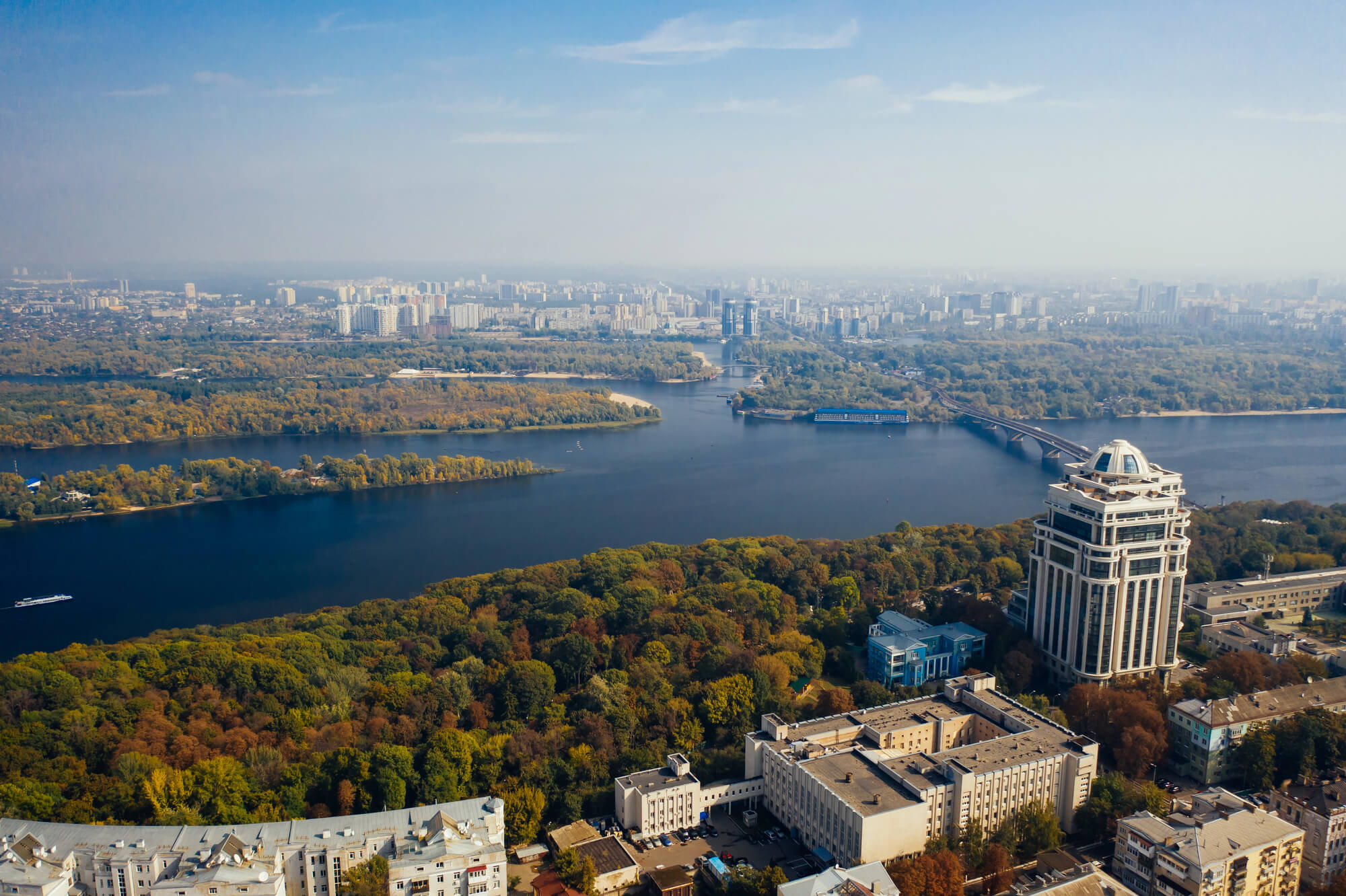A Ukrainian Yuriy Gorodnichenko is the No. 1 young economist in the world according to the Research Papers in Economics rating, professor at the University of California, Berkeley, co-founder and member of the editorial board of VoxUkraine. Yuriy is also a member of the international advisory board of Kyiv School of Economics where he studied before moving to the United States. He studies monetary and fiscal policy, taxation, the issues of economic growth and price formation, and business cycles.
On May 18, 2017, he participated in the conference “The Role of Central Bank in the Economic Development” in Kyiv. The NBU website has already published photos, videos, and presentations from this event. Journalists from LB.ua have used that opportunity to talk with Gorodnichenko about the role of the Ukrainian central bank, the nationalization of Privatbank, and the latest changes in the tax system of Ukraine.
The interview was originally published on LB.ua.
On the role and responsibilities of the NBU
If we take the entire period of Ukraine’s independence, we’ll see that the National Bank was playing different roles at different time. How did those roles change, in your opinion?
The roles have changed very much. Initially, the National Bank was like a Soviet bank; the idea was to issue loans to the enterprises, to ensure that employees are paid on time, and so on. We know how this ended. The government did not have enough tax revenue to pay the enterprises or the workers. It had only one resource: a “printing press” of the central bank. The National Bank of Ukraine printed a lot of money. We got hyperinflation, and everyone realized that this is a road to nowhere, that we need to change the role of the central bank, that it should not issue loans to businesses or the government and instead it should focus on inflation and economic stability. It was the first big revolution.
When did the first changes start?
I would say in 1995-1996 when we moved to hryvnia. Then the right steps were taken. For example, we fixed the rate of hryvnia to curb inflationary expectations and stopped printing money. What did we fail to do? There was no understanding that the NBU should be independent and should make macroprudential policy (preventing financial crises, – Ed.). After several crises, we finally came to it.
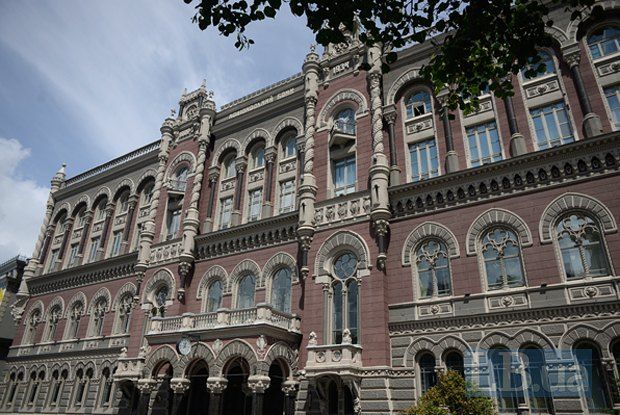
Photo by Maksim Levin
But do we get it right that the ultimate understanding has come only after the latest revolution?
Yes, that’s right. I had a feeling that the National Bank was still a kind of a pocket bank for politicians. When you need to be re-elected or get a loan, to turn a blind eye to something – this was all possible. Now it’s not. There is an understanding that this is a resource that cannot be in someone’s pocket. Nobody should be able, for example, to call Hontareva, Solohub or Smoliy and say that he or she wants to do this or that way.
The press blames Hontareva for having connections with Poroshenko because they used to have business contacts within the ICU. These might be far-fetched accusations, but it’s true – and economists will confirm it – that in 2014, when the presidential and, later, parliamentary elections were held, the National Bank maintained the rate of hryvnia for several months, “burning” the reserves. This move is criticized as such that was being taken for political reasons.
I would like to make a few observations. First, Ukraine is a very small country, where everyone is connected with everyone. A friend, a cousin, an in-law, a brother. It is impossible to imagine someone coming from another place, from another universe, not connected with anyone. There must be some kind of reputation, someone worked with someone, everyone knows each other. And to some extent there must be an element of trust. Figuratively speaking, Poroshenko cannot appoint a person whom he does not trust. They must know each other.
Second, unfortunately, we all learn from mistakes. We would like to learn from other people’s mistakes, but my experience tells me that it’s hard. We have to learn from our own mistakes. It is very difficult to know the correct answer in crisis conditions. I would give you a personal example: when that crisis broke out, I also believed that 12 hryvnias for one dollar is, more or less, the equilibrium, the point where one should stop. We did not discuss this with the National Bank – I think they came to this conclusion on their own. There might have been an honest mistake. People thought it over, made some calculations, reached such a figure, decided to give it a try. But when they tried it, it did not work.
By the way, I am happy that the National Bank has abandoned a fixed exchange rate target, because it was a road to nowhere given how our economy works, what we import, what we export. We simply cannot credibly defend a fixed exchange rate. And the experience shows that we had three huge crises, because at some point there was simply nothing to defend the exchange rate with.
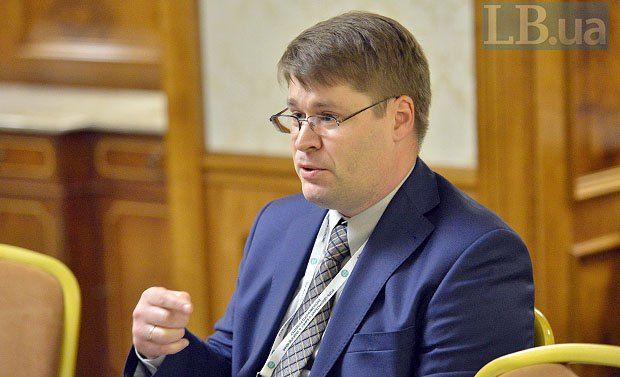
Photo by Maksim Trebuhiv
Today, a large-scale crisis can break out again due to the fact that the head of the National Bank is about to change. Nobody knows who the next leader will be and what kind of policy he or she will follow. There is a powerful lobby in the parliament which wants to return to those practices, when the National Bank helped businesses, issuing loans to them.
It will be a monstrous mistake. Among the speakers at the National Bank conference was the first deputy chair of the Swedish central bank. I asked her this question: “Suppose that during a crisis or a political process in Sweden you get a call from the prime minister or an MP. He or she says that they have problems with Volvo or Saab, that private banks do not lend them money or, if they do, their interest rates are too high. And the only solution is that the Swedish central bank should help them out and issue a loan.”
She could not understand what I was asking about. And then made a politically correct response, saying that the prime minister would never call her with such a question. To make sure that our audience understood what she meant, I asked her another question: “He will not call, because he knows in advance that the answer will be “no”?” And she answered: “Yes, it does not make any sense to approach me with such questions, because there are private banks which decide who can get a credit, and who cannot. The central bank shall never do this. Only in some absolutely exceptional circumstances, and only within the financial sector.”
I do not know whether the Ukrainian prime minister reaches out to the head of the NBU with such requests. However, we can see that in the end of the year the prime minister says: “Let’s allow for 45 billion of budget revenues from the National Bank next year”, while the National Bank says that it has counted only 40 billion. As a result, they agree on some figure: as far as I know, it was 44 billion. But it’s still some kind of a compromise policy. That is, the National Bank is not completely independent of the government.
By design, central banks are non-profit organizations. Their goal is not to maximize the surplus transferred to the government. However, the activity of the central banks is that these organizations are very profitable. Roughly speaking, they can print money. And given inflation and economic growth, it is inevitable that central banks will print money. They will earn something. And so it’s no surprise that central banks transfer resources to the budget. The Federal Reserve System (FRS) works exactly in the same way. It has tremendous volumes of bonds on its balance. These bonds bear interest. What should they do with the interest income? They cannot leave this money to themselves. They transfer these resources to the US Treasury. But no one thinks that in this way the FRS helps the Treasury to solve the issues with budget deficit or public debt. I do not know the details, but the very fact that the NBU transfers money to the Cabinet of Ministers does not mean anything.
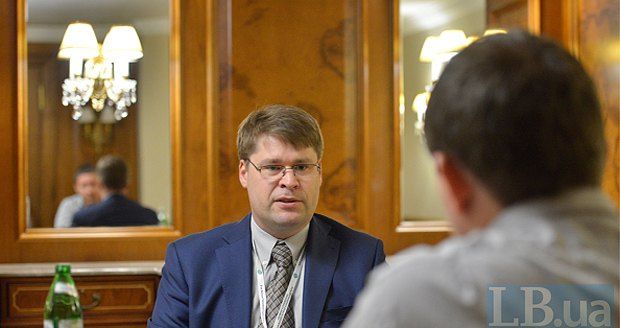
Photo by Maksim Trebuhiv
Perhaps the government implies that due to the growth of inflation rates the NBU can transfer a large amount of money to the budget?
The National Bank does not work in a vacuum. To some extent, it’s natural that there is some pressure. And the task of the National Bank is to say that 45 is too much for us, let’s make it 40.
So, it is important that the next head of the National Bank should not only keep away from politics, from the times when the National Bank was a kind of an issuing center, but should also be able to stand up for himself or herself in the discussions with the government?
Absolutely.
If we talk about the results of work of Valeria Hontareva, she is criticized mostly by former bank owners or former top managers of bankrupt banks. Yet, sometimes this criticism is to the point. More than 100 thousand people have become unemployed, many people with large deposits and many companies, including government-owned ones, have lost their money in the accounts of the banks which went bankrupt. Obviously, it is the owners and the managers of these banks who should be blamed, although the National Bank is also guilty, as it failed to recognize the problem on time. Privatbank is a striking example: in 2015 there was a hole of 113 billion UAH, while in late 2016 – 148 billion UAH. According to Valeria Hontareva, another 16 billion UAH have been withdrawn from the bank over the last few days before the nationalization. Is it possible to blame the National Bank in this case? What kind of responsibility can the regulator’s employees bear or how can they remedy the situation?
Let’s start with the predecessors. Valeria Hontareva’s team did not come into some paradise, where everything was working seamlessly, everything was perfectly organized, and then 100 banks were suddenly withdrawn from the market, thousands of people were dismissed, and lots of people lost their money. We have been progressing to this problem for a long time.
Indeed, our banking system operated against the principles of banking. A bank must diversify the risks when it collects deposits. The overwhelming majority of our banks did absolutely the opposite: they concentrated risks. Therefore, when the crisis broke out, those concentrated risks “exploded.”

Photo by Maksim Trebuhiv
In theory, there were several options one could take. First, the taxpayers represented by the National Bank would save all the banks, pouring money into them. The second option was to inspect a bank, recognize that “the patient is more dead than alive”, and withdraw it from the market. And the third option is Privatbank and nationalization. When the new NBU team looked into Privatbank, they must have spotted a glaring hole and pondered what they should do. Imagine that you found yourself on the Titanic – what would be your further actions? You have five minutes to decide what to do with this ship. It’s a lot of money. Who should do this? Try to walk in Hontareva’s shoes. She should have poured 100 billion UAH into Privatbank. And where is the guarantee that this money will come back? Given all the factors of the situation going on with Privatbank, there was no such guarantee. As a result, nationalization took place.
According to the law – and this is a global practice – central banks do not nationalize other banks; this should be done by the Ministry of Finance or another authority with similar rights. That is, even if Hontareva had wanted to nationalize the bank, she could not do it. This was to be a decision of the Cabinet of Ministers. Therefore, when answering the question of who is to blame, it would be worthwhile to check who was in the government at that time, who worked in the Ministry of Finance, who was the prime minister, what those people talked about and why they did not decide to nationalize Privatbank earlier. The cost of delay, figuratively speaking, was 50 billion UAH.
Are there any chances to return money spent on Privatbank?
I think so. Privatbank is a huge bank which controlled a giant market share before the crisis and will continue to control it. It seems to me that this is a huge asset. If the economy starts to grow, the bank could earn a lot given its client base. We’ll see if it will be successful or not.
Another detail, which probably horrifies the West, is when the head of the National Bank claims that she is being threatened. She doesn’t give any names, but everyone can guess what they are. But what, do you think, was the key factor which made Hontareva resign? Do you know any insider information?
No, I do not. But this is another reason why we should be grateful to her. Few people would agree to lead an office and face death threats. Therefore, the list of those willing to assume her office is not long. Or these are people we wouldn’t like to see at the NBU helm.
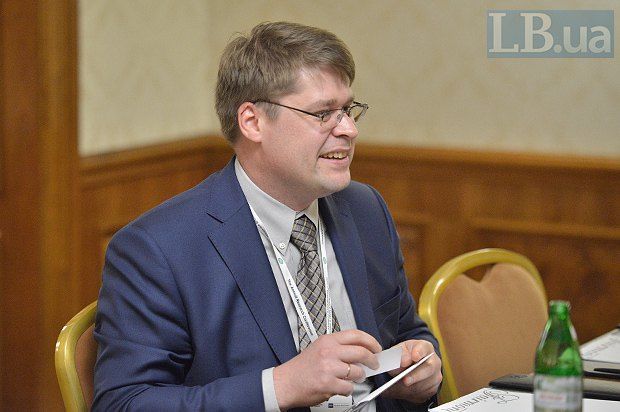
Photo by Maksim Trebuhiv
Tax rate is not the most important thing
Let’s talk about the tax system which has considerably changed after the revolution. What is your opinion of these changes?
In terms of strategy, fiscal decentralization is a very good idea. We still have excessive Soviet-style centralization, when people on the ground have no resources, cannot assume responsibility, and are unable to solve their problems. For example, the problem with garbage in Lviv. This is shocking for someone living, let’s say, in California. They cannot imagine the mayor of San Francisco or Auckland having similar problems. If one landfill site cannot take it, it’s okay, we’ll find another one. But for some reason here it becomes a huge problem.
The reason is it is not decided at the level of Lviv. So, the strategy of fiscal decentralization is a good idea. How well it was implemented – it’s another thing. In the US and other countries, local authorities can tax their citizens. For example, in California, there is a city tax, real estate tax, state tax, and a bunch of other taxes. In Ukraine, as far as I know, there are no local taxes that would be equally important. We have formulas distributing some taxes between the central and the local budgets.
There is a property tax, but as far as I understand, it is a politically difficult issue for the local authorities.
I think that we will come to it sooner or later. Everyone does.
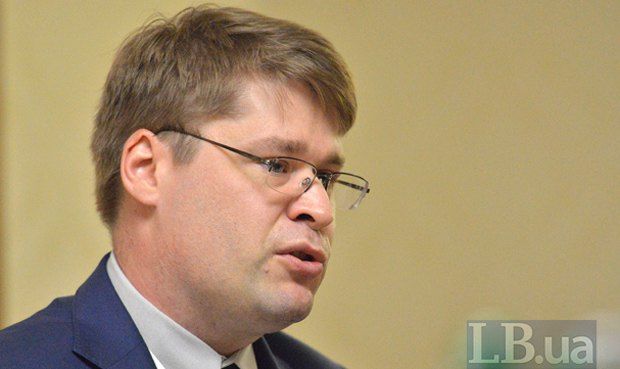
Photo by Maksim Trebuhiv
There is also a lobby represented by the owners of large commercial real estate, who do not want to pay any taxes and, at the same time, can influence local authorities. And it is simply impossible to introduce a tax on residential real estate, leaving out the commercial property.
This is why fiscal decentralization is important. Suppose, that real estate tax cannot be introduced in Lviv or in Kyiv because of such lobby. But there is another city, let’s say, Bila Tserkva, where there is no lobby. The local authorities will make an experiment there, showing how it works. Everyone will look at that and next time it will be more difficult for Kyiv mayor Klytschko or Lviv mayor Sadovyi to explain to their voters why they do not introduce this.
Did the lowering of the unified social tax (UST) result in the legalization of income?
I have written a critical article about the UST, warning that it would not work, because money would not flow and there would be a big hole. Now I see that I was right. The idea of lowering taxes is good. Yet, against the background of other countries, Ukrainian taxation scheme is not that aggressive. We are not much more “expensive” against the comparable countries. It is the implementation of tax legislation that is really poor. It takes a lot of time and resources to make this or that tax payment, to fill out numerous tax documents. And then these endless audits and inspections. Why check everyone? In the US, everyone fills tax declarations, but only 0.5-1% of them are audited. Why do we need a whole army of tax inspectors?

Photo from olegblog.com
So, the main thing is not the tax rate, but the simplicity of doing business.
Right. Another example. The US has a very good law. Do you want to introduce another form? Before this law is adopted, someone must test this form and say how long it will take to complete it. If the new form will be a burden for you, if it takes ten hours and 20 certificates to fill it out, no one will ever introduce such a form.
If I recall correctly, it takes an average of eight hours to fill out the annual tax declaration in the United States. At the same time, you can go to the library, and they will help you with that. Of course, if you are Donald Trump, then you need experts to help you fill out your declaration, while an ordinary citizen can fill in a special simplified form in minutes. And, if you have a mortgage, the bank will automatically e-mail you a pdf-file in case the tax authorities ask about it. I do not even attach it to my declaration – it’s just in case. And if the tax inspectors have any doubts, they will most likely reach out to the bank, not to me. This is the system we should strive for. It should be as simple as possible. And all databases should be open. It is good that property rights are in the public domain on the Internet. When everyone sees that someone owns a house, it helps to protect their property rights. While if the cost of that house does not match the person’s income, open data will reveal this.
There is a simplified tax system for individual entrepreneurs in Ukraine.
We should get rid of this simplified tax on individual entrepreneurs.
But how will we do without them? Force everyone to join this inconvenient tax system you yourself have just criticized?
There is point A, where we all want to get to, and there is point B, where we are now. For point B, tax on individual entrepreneurs could be an acceptable option. But if we think about the future, we will simplify this terrible tax administration. Why would we need a special tax for individual entrepreneurs then? I understand that individual entrepreneurs have a big advantage – simplicity. But this tax can be a big problem because it creates huge distortions in the tax system. How come that 200-300 people employed at a big company are all individual entrepreneurs?
It also creates significant tax inequalities: a person can receive a huge income and pay only nominal taxes, being registered as an individual entrepreneur. It should not be like this.

Photo by Vadym Krutyvus
Fundamental factors
The IMF forecasts 2-3% of GDP growth in the coming years. This is too little if we want to catch up with even the poorest European countries.
Our goal should be at least 7% of GDP growth. Then we will “catch up and surpass” America. Nothing is impossible. If we go back to 1978 and look at China, it was a backward country, the level of poverty was absolutely incredible. Now let’s fast forward 30-40 years and now we admire what China has managed to achieve. We can do the same.
Fundamental factors are much better in Ukraine than in China or in Africa. We are much closer to the huge European market. It takes about 30 hours to load something into the truck and send it from Kyiv to Berlin. Take the same container and ship it from Shanghai to Berlin – it will take a week at the very least or a month if shipping by sea. In the current business environment, we, consumers, want to push a button and get the result immediately. China cannot compete with us here. Our second advantage is the level of education. Many of these countries – Vietnam, Mexico, African countries– have problems with education. In some countries there are problems with literacy – people are simply illiterate. We don’t have this issue – everyone here can write and count. Lots of young people obtain higher education. So, Ukrainians have a high level of qualifications. This is important, because today’s economy is built on cutting-edge technologies, and you need to know how to absorb them. Why does China invest so much money in science and education? Because they want to have this critical mass of people who can absorb new knowledge. Africa does not do this, so it doesn’t grow. We have this capacity. The third factor in many ways reflects the unfortunate fate of Ukraine, where the level of per capita income is laughable. Given where we are and where we could be, it’s simply laughable. But we can turn it into an advantage. For example, it is much cheaper to assemble a car or a TV in Ukraine than in Poland or in the Czech Republic. We have a huge price advantage compared to other countries.
If I were some kind of a businessman with real money, I would invest in Ukraine. Because Ukraine is the land of opportunity, and you can have such a chance only once.
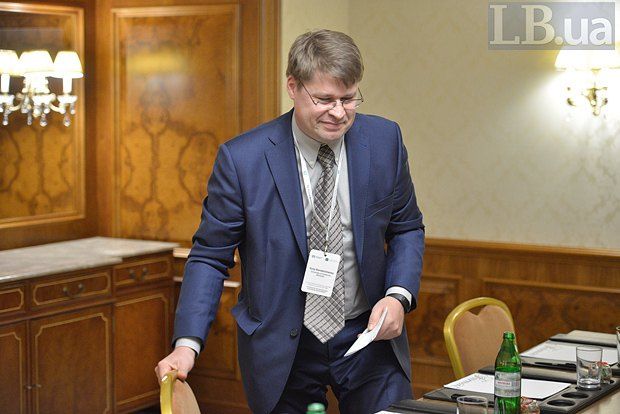
Attention
The author doesn`t work for, consult to, own shares in or receive funding from any company or organization that would benefit from this article, and have no relevant affiliations



